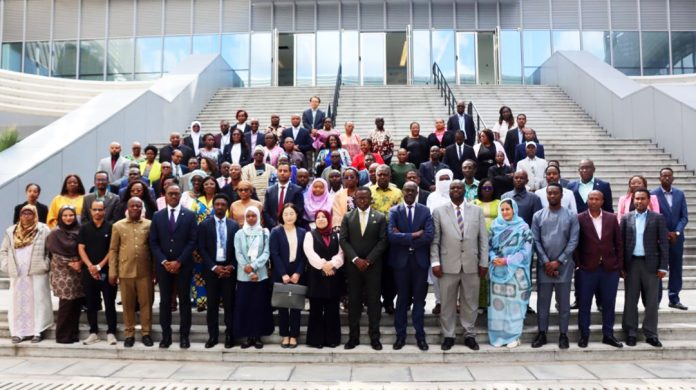Africa Union Member States have endorsed a new strategic plan at to tackle endemic diseases across the African continent. The Africa Centres for Disease Control and Prevention (Africa CDC) convened a key workshop from November 27–29, 2024, in Addis Ababa to launch the new strategy with an emphasis on integrated health systems, prioritising preventing and controlling major health threats such as HIV/AIDS, malaria, tuberculosis (TB), hepatitis, and neglected tropical diseases (NTDs).
“It is indeed an honour to address you today and to participate in this important workshop with the expectation that we come out of it stronger with strategies and renewed commitments for the prevention and control of HIV/AIDS, TB, Malaria, Hepatitis and Neglected Tropical Diseases (NTDs) on the continent,” said H.E Dr. Jean Kaseya, Director General of Africa CDC opening the workshop.
Delegates from all 55 African Union (AU) Member States came together reviewed and endorse the Africa CDC’s blueprint for 2024–2027. This plan represents a unified effort to address the continent’s most urgent health challenges by integrating prevention and control strategies into national health systems.
In Africa, infectious diseases continue to have a disproportionate impact, accounting for 94% of global malaria cases and 95% of malaria-related deaths. The continent also carries 40% of the global burden of NTDs, and all African countries face at least one endemic NTD. Yet, the main barriers to progress remain underfunding, weak health systems, limited research, and poor access to treatment.
“We need to brace up to change this narrative by intensifying our efforts to find lasting solutions for the control and eventual elimination of these diseases,” said Dr Kaseya.
The workshop’s key objectives included:
- Validating the strategic priorities for disease prevention and control across HIV/AIDS, malaria, TB, hepatitis, and NTDs.
- Engaging stakeholders to strengthen multisectoral collaboration.
- Finalizing a detailed implementation plan with clear monitoring and evaluation indicators.
- Establishing sustainable partnerships to support long-term health system strengthening.
This effort is aligned with the African Union’s Agenda 2063 and the Africa CDC’s “New Public Health Order,” which focuses on boosting the continent’s self-reliance in health security.
In addition to expert contributions, political leadership will play a critical role, with AU Champions leading key initiatives:
- Cyril Ramaphosa (South Africa) – Champion for Pandemic Preparedness and Response.
- Bola Tinubu, President of Nigeria – Champion for Health Workforce and Community Development.
- Hakainde Hichilema, President of Zambia – Champion for Cholera Elimination.
- William Ruto, President of Kenya – Champion for Local Manufacturing.
At the end of the workshop, delegates delivered a validated strategic priorities document, alongside a costed implementation plan, setting the stage for more effective health responses across Africa. “The involvement of Member States is transformative,” said Dr Kaseya. “Together, we will create a more resilient, integrated, and inclusive health future for Africa.”
About Africa Centres for Disease Control and Prevention (Africa CDC)
The Africa Centres for Disease Control and Prevention (Africa CDC) is a public health agency of the African Union. It is autonomous and supports member states in strengthening health systems. It also helps improve disease surveillance, emergency response, and disease control.









